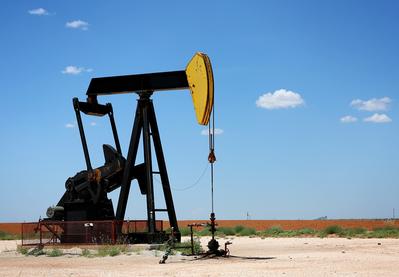Crude Stocks Post Surprise Rise as Imports Surge -EIA
Crude inventories rose by 3.3 million barrels in the week ended April 6, compared with analysts' expectations for a decrease of 189,000 barrels.
Net U.S. crude imports rose last week by 1.7 million barrels per day to 8.65 million bpd. However, the overall four-week average of U.S. imports has remained relatively stable from the same period a year ago.
Weekly production topped 10.5 million bpd for the first time, the EIA said, though the weekly figures are notoriously volatile; EIA monthly figures for December and January put production sharply lower than the weekly estimates.
Crude prices initially dropped, but rebounded as market players focused on escalating tensions in Syria, after President Donald Trump threatened a missile attack following a chemical weapons attack there this week.
Analysts also linked the rally to news of loud blasts in Saudi Arabia's capital Riyadh. Al Arabiya TV reported Saudi defense forces had intercepted a rocket over the capital.
However, worldwide global tensions fed more buying of crude, boosting U.S. crude to its highest level since December 2014. U.S. crude rose 1.7 percent, or $1.15 a barrel, to $66.68, on heavy volume, while Brent crude gained 1.6 percent to $72.22 a barrel as of 10:46 a.m. EST (1446 GMT).
Crude stocks at the Cushing, Oklahoma, delivery hub rose by 1.1 million barrels, EIA said.
Refinery crude runs rose by 83,000 barrels per day, EIA data showed. Refinery utilization rates rose by 0.5 percentage points.
"There was strong refinery demand with over 17 million bpd of crude oil processed last week, which was needed to meet strong refined product demand, especially for gasoline," said John Kilduff, partner at energy hedge fund Again Capital LLC in New York.
Gasoline stocks rose by 458,000 barrels, compared with analysts' expectations in a Reuters poll for a 1.4 million-barrel drop. Gasoline futures turned negative after the news.
Distillate stockpiles, which include diesel and heating oil, fell by 1 million barrels, versus expectations for a fall of 29,000 barrels.

